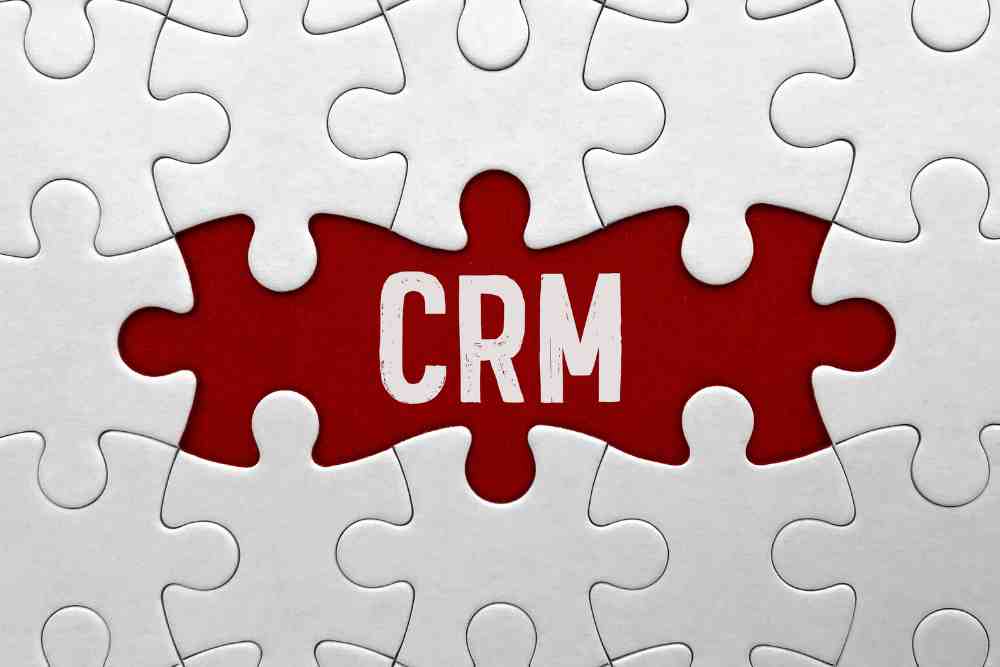Examining Strategies for Streamlining Enterprise Workflows with CRM

Streamlining enterprise workflows is crucial for businesses to improve efficiency, productivity, and customer satisfaction. One powerful tool that can help achieve this goal is Customer Relationship Management (CRM) software. In this article, we will explore various strategies for streamlining enterprise workflows with CRM, backed by research, examples, and case studies.
1. Understanding CRM and its Benefits
Before diving into the strategies, let’s first understand what CRM is and the benefits it offers to businesses. CRM is a software solution that helps manage customer interactions, sales processes, and marketing campaigns. It centralizes customer data, automates tasks, and provides valuable insights to enhance customer relationships.
Some key benefits of implementing CRM in enterprise workflows include:
- Improved customer satisfaction: CRM enables businesses to provide personalized experiences, timely support, and efficient communication, leading to higher customer satisfaction.
- Enhanced sales performance: CRM helps sales teams track leads, manage pipelines, and automate follow-ups, resulting in increased sales efficiency and revenue.
- Streamlined marketing campaigns: CRM allows marketers to segment customers, track campaign performance, and automate targeted communications, leading to more effective marketing efforts.
- Efficient collaboration: CRM facilitates seamless collaboration among teams by centralizing customer data, enabling better coordination and communication.
2. Integrating CRM with Existing Workflows
Integrating CRM with existing workflows is a crucial step in streamlining enterprise processes. By seamlessly connecting CRM with other business systems, such as email, project management, and customer support tools, businesses can achieve a unified view of customer interactions and streamline data flow.
For example, integrating CRM with email systems allows sales and support teams to automatically capture and track customer interactions, ensuring no important communication is missed. This integration also enables the automation of follow-up emails and personalized responses, saving time and effort.
Similarly, integrating CRM with project management tools helps teams collaborate more effectively. Project milestones, tasks, and deadlines can be linked to customer data, ensuring everyone is on the same page and reducing the risk of miscommunication or missed deadlines.
3. Automating Routine Tasks
Automation is a key feature of CRM software that can significantly streamline enterprise workflows. By automating routine tasks, businesses can save time, reduce human error, and focus on more value-added activities.
Some examples of tasks that can be automated with CRM include:
- Lead nurturing: CRM can automate personalized email sequences based on customer behavior, ensuring leads are nurtured effectively.
- Follow-ups: CRM can automatically schedule follow-up tasks and reminders for sales representatives, ensuring timely and consistent communication with prospects.
- Data entry: CRM can automatically capture and update customer data from various sources, eliminating the need for manual data entry and reducing errors.
- Reporting: CRM can generate real-time reports and dashboards, providing valuable insights into sales performance, customer behavior, and marketing campaign effectiveness.
By automating these tasks, businesses can free up valuable time for their employees, allowing them to focus on building relationships, closing deals, and driving growth.
4. Personalizing Customer Interactions
Personalization is a key aspect of successful customer relationship management. CRM software provides businesses with the tools to personalize customer interactions at scale, leading to improved customer satisfaction and loyalty.
With CRM, businesses can:
- Segment customers based on demographics, behavior, or purchase history, allowing for targeted marketing campaigns and personalized offers.
- Track customer preferences and interactions, enabling sales and support teams to provide tailored recommendations and solutions.
- Automate personalized email sequences, ensuring customers receive relevant content and offers based on their interests and needs.
Personalization not only enhances the customer experience but also increases the chances of upselling, cross-selling, and customer retention.
5. Leveraging Analytics and Insights
CRM software provides businesses with valuable analytics and insights that can drive data-informed decision-making. By leveraging these analytics, businesses can identify bottlenecks, optimize processes, and improve overall workflow efficiency.
Some key analytics and insights provided by CRM include:
- Sales pipeline analysis: CRM allows businesses to track the progress of deals, identify potential roadblocks, and optimize the sales process for better conversion rates.
- Customer behavior analysis: CRM provides insights into customer interactions, preferences, and buying patterns, enabling businesses to tailor their offerings and marketing strategies accordingly.
- Marketing campaign performance: CRM tracks the effectiveness of marketing campaigns, including email open rates, click-through rates, and conversion rates, helping businesses refine their strategies for better results.
By regularly analyzing these insights, businesses can make data-driven decisions, identify areas for improvement, and continuously optimize their workflows.
Streamlining enterprise workflows with CRM is a powerful strategy for improving efficiency, productivity, and customer satisfaction. By integrating CRM with existing workflows, automating routine tasks, personalizing customer interactions, and leveraging analytics, businesses can achieve significant improvements in their operations.
Implementing a comprehensive CRM solution, such as SaasExpert.ca, can provide small businesses, agency owners, and marketers with an all-in-one platform to streamline their workflows and drive growth. By following the strategies outlined in this article and leveraging the capabilities of CRM software, businesses can unlock their full potential and stay ahead in today’s competitive market.
Remember, the key to successful CRM implementation lies in understanding the unique needs of your business and aligning the CRM strategy accordingly. With the right approach and the right CRM solution, businesses can transform their workflows, enhance customer relationships, and achieve long-term success.
So, why wait? Start streamlining your enterprise workflows with CRM today and unlock the full potential of your business!
Visit SaasExpert.ca – Your All-In-One Sales and Marketing Platform for small businesses, agency owners, and marketers.
Frequently asked questions about Examining Strategies for Streamlining Enterprise Workflows with CRM.

🌟 How Can CRM Streamline Workflows for Large-Scale Enterprises?
Hey there, future CRM aficionado! When it comes to enterprises, the stakes are high, but the rewards can be even higher with a well-implemented CRM system. 🚀
Data Consolidation: Imagine having customer data, interaction history, internal communications, and reports all under one roof. 🏠
Process Automation: Automate tasks like lead distribution, follow-ups, and report generation to eliminate human errors and delays. 🤖
Team Collaboration: Centralized data means your sales, marketing, and customer service teams can work seamlessly, like a finely-tuned orchestra. 🎻
The big picture? More efficient workflows, happier employees, and a better bottom line. 💰
🤝 How Does CRM Enable Better Interdepartmental Collaboration?
Oh, you’re on to something good here! For large enterprises, silos can be a major roadblock, but CRM smashes through those barriers. 🚧
Unified Data: Everyone gets access to the same reliable, up-to-date information. 📊
Task Management: Assign and track tasks between departments effortlessly. 📝
Shared Goals: When everyone can see how they’re contributing to larger objectives, collaboration becomes natural. 🎯
So, say goodbye to miscommunications and inefficiencies, and say hello to a more unified and collaborative work environment! 👋
💡 Can You Share Some Strategies for Leveraging CRM in Streamlining Workflows?
Absolutely, strategy is key! Here are some solid ways to leverage your CRM:
Prioritize Automation: Identify repetitive tasks that can be automated to free up time for strategic work. 🔄
Train Your Teams: Make sure everyone knows how to use the CRM to its full potential. 🎓
Integrate Other Tools: Use CRM as the hub and integrate other software like email, social media, and ERP systems. 🔄
Regular Audits: Continuously measure how well the CRM is performing and adjust your workflows as needed. 📋
The goal is to make your CRM system a living, breathing part of your enterprise that evolves with your needs. 🌱
🎯 How Can CRM Help in Achieving Long-Term Strategic Goals?
Fantastic question! Think of CRM as a long-term investment rather than a one-time purchase. 📈
Customer Retention: Keep your existing customers happy and coming back for more. 🤗
Scalability: As your enterprise grows, a good CRM grows with you. 🌱
Market Insights: Use the data collected to identify market trends and make future-ready decisions. 📊
Resource Optimization: Allocate resources more effectively based on real insights, not gut feelings. 🎯
In essence, CRM is the scaffolding upon which you can build your empire. 🏰
🛠 Are There Any Industry-Specific CRM Features for Streamlining Workflows?
You’re thinking smart! While many CRM features are universally useful, some are tailored for specific industries. 👔
For Retail: Inventory tracking, point-of-sale integration, and customer loyalty programs. 🛒
For Healthcare: Patient records, appointment scheduling, and compliance monitoring. 🏥
For Real Estate: Property listings, client portfolios, and commission tracking. 🏠
For Manufacturing: Supply chain management, quality control, and vendor relations. 🏭
Whatever your industry, there’s likely a CRM solution fine-tuned for your unique needs. 🎛
The possibilities are endless when you leverage CRM to streamline your enterprise workflows. So are you ready to transform your large-scale enterprise into a lean, mean, CRM-powered machine? 🌟
- crm
- customer relationship management
- Examining Strategies for Streamlining Enterprise Workflows with CRM
- What is CRM Software?






